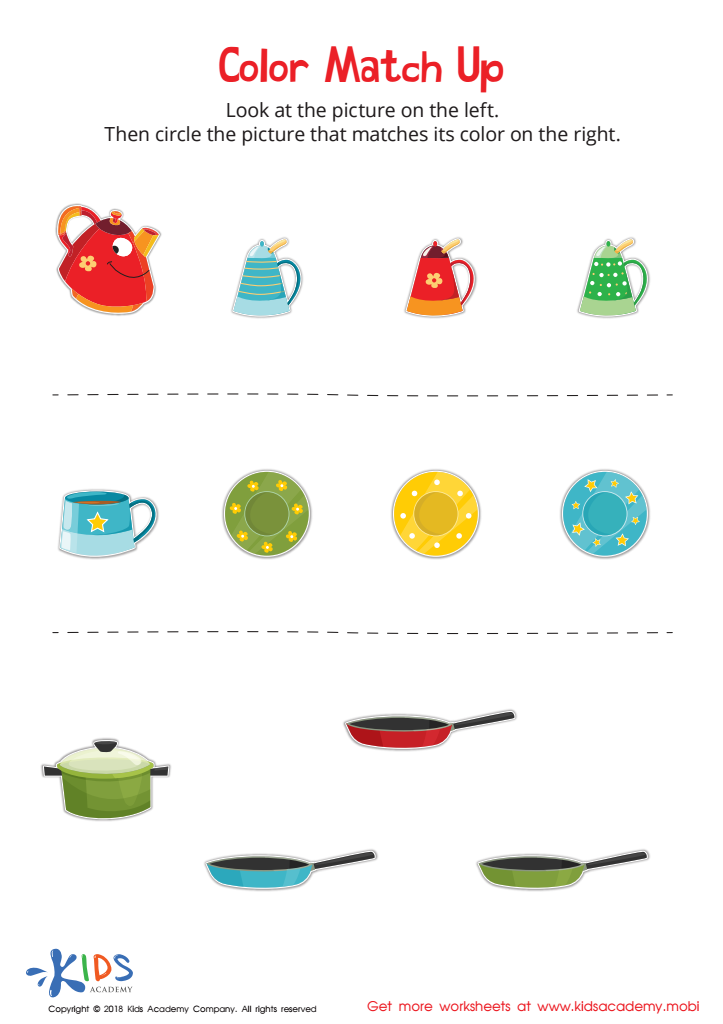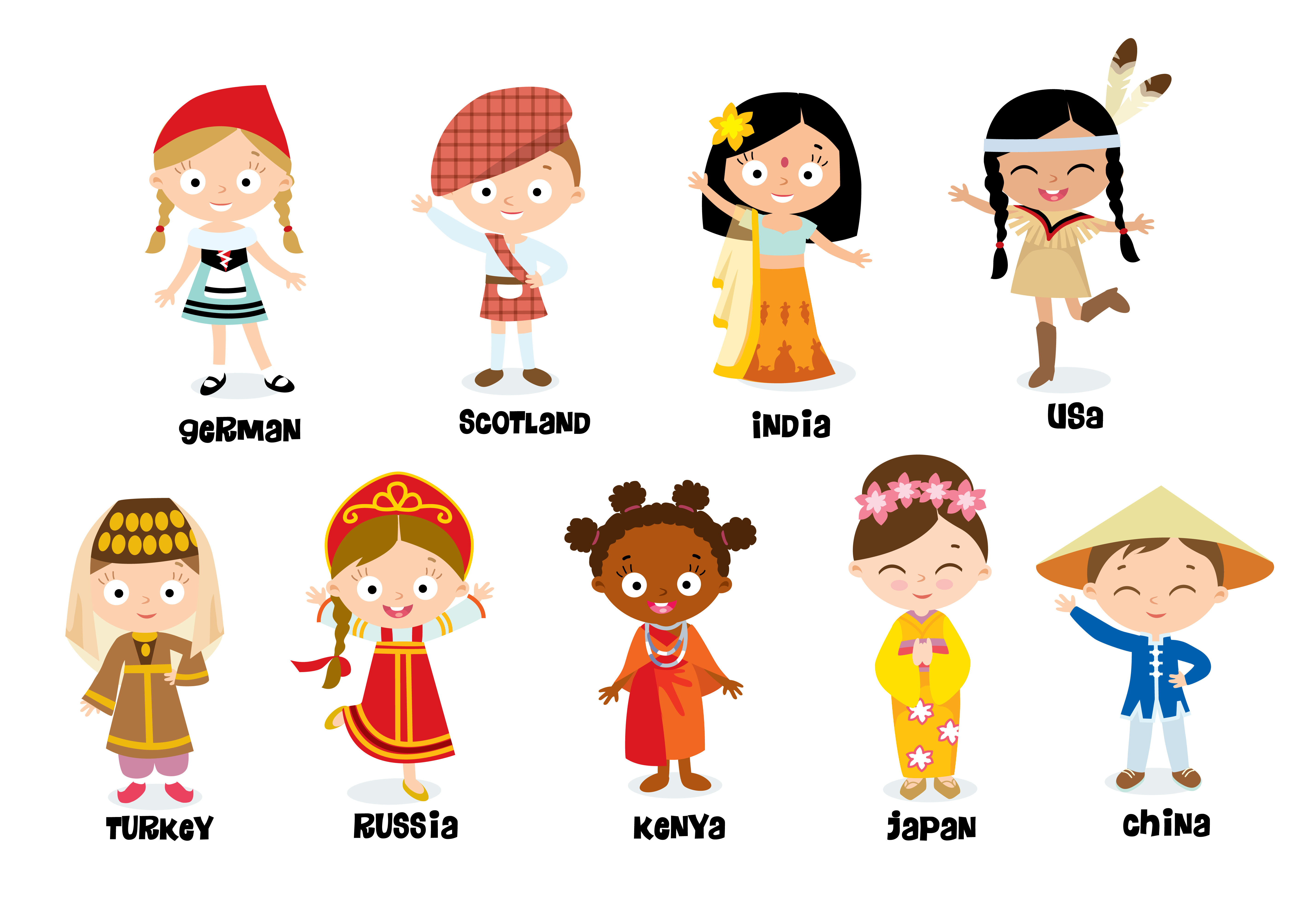Matching skills Normal Worksheets for Ages 3-6
14 filtered results
-
From - To
Discover our "Matching Skills Worksheets" for children aged 3-6, designed to enhance cognitive development through engaging and educational activities. These fun and interactive worksheets help young learners improve their memory, concentration, and problem-solving skills by matching objects, shapes, colors, and patterns. Our expertly crafted resources are perfect for both classroom and at-home learning, offering a delightful way for kids to practice essential early learning skills. Boost your child's confidence and promote a love for learning with Kids Academy's comprehensive collection of matching skills worksheets. Start fostering foundational abilities today!
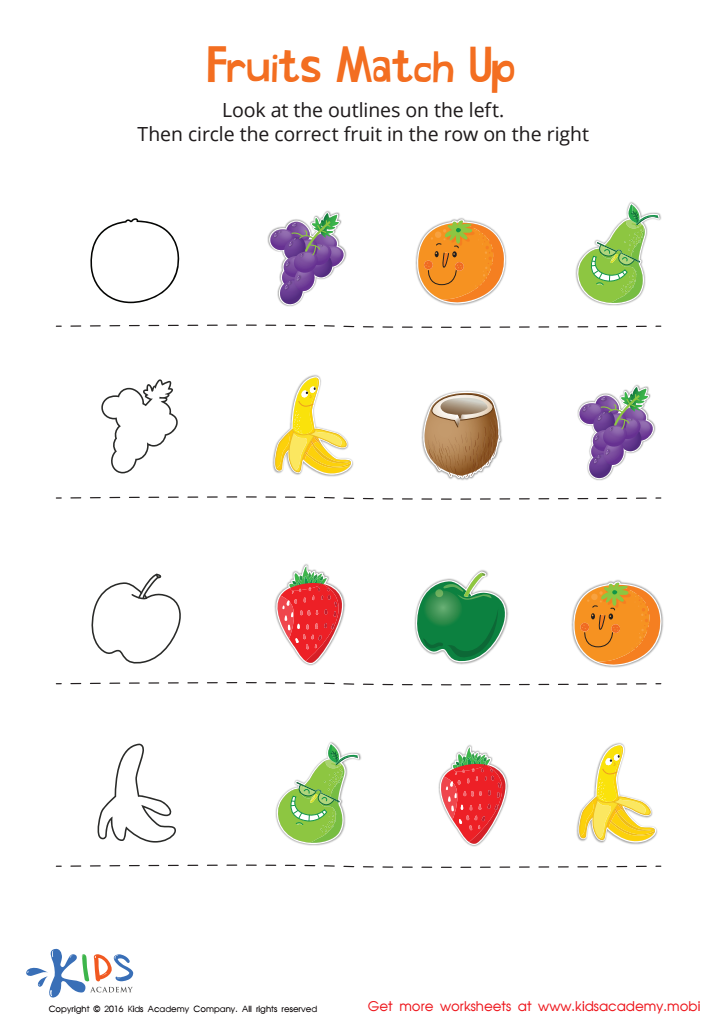

Fruits Match Up Worksheet
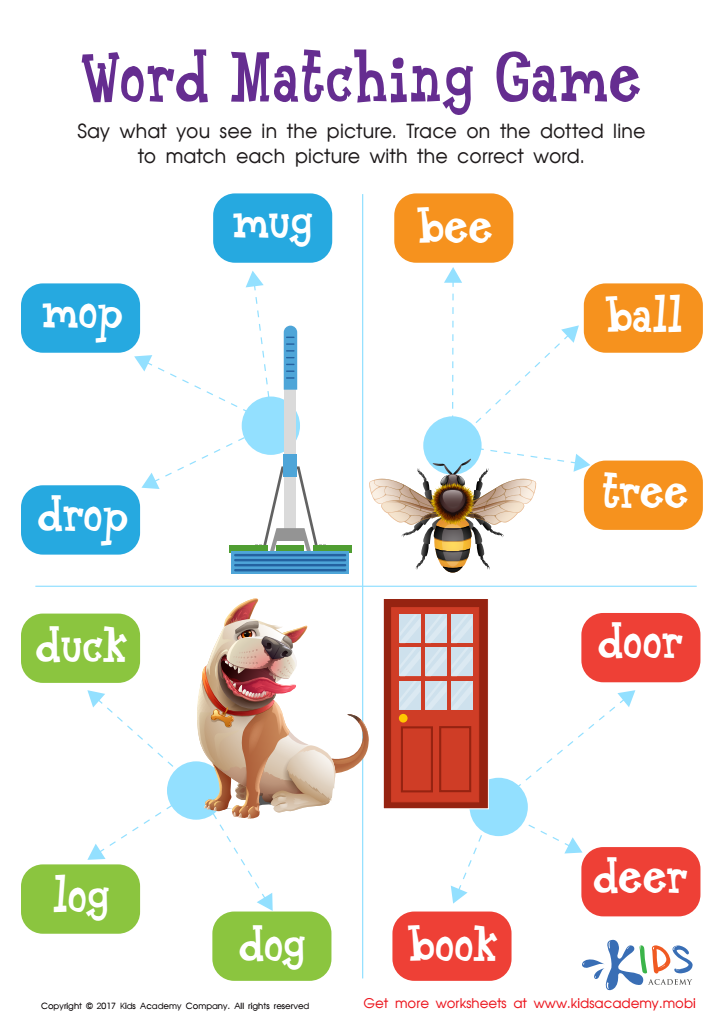

Word Matching Game Worksheet
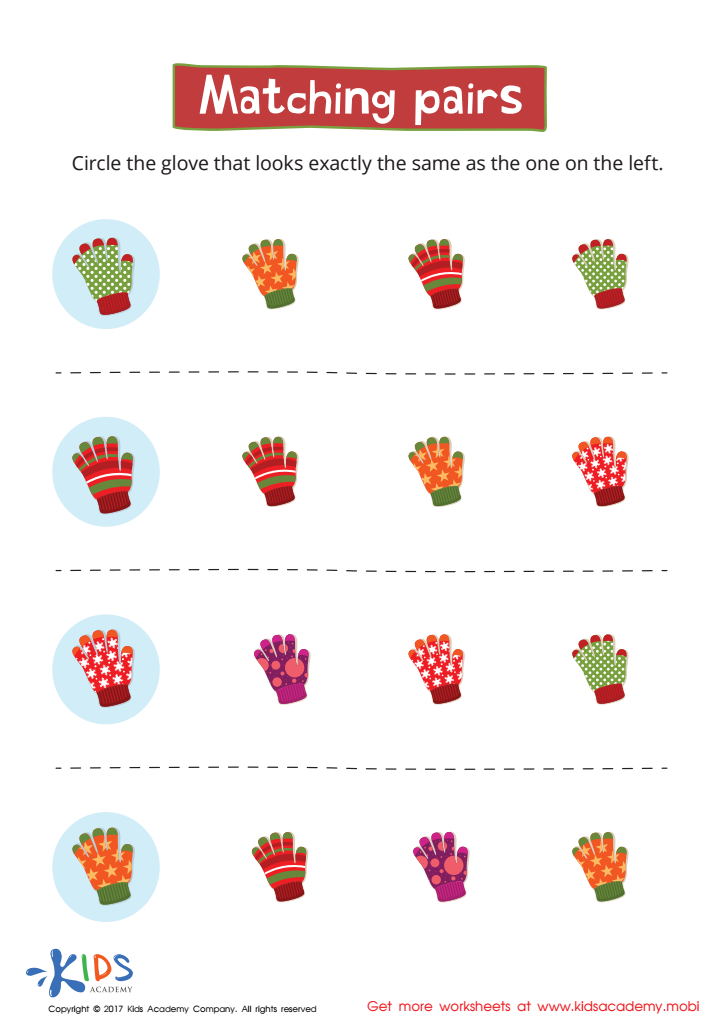

Matching: Matching Pairs Worksheet
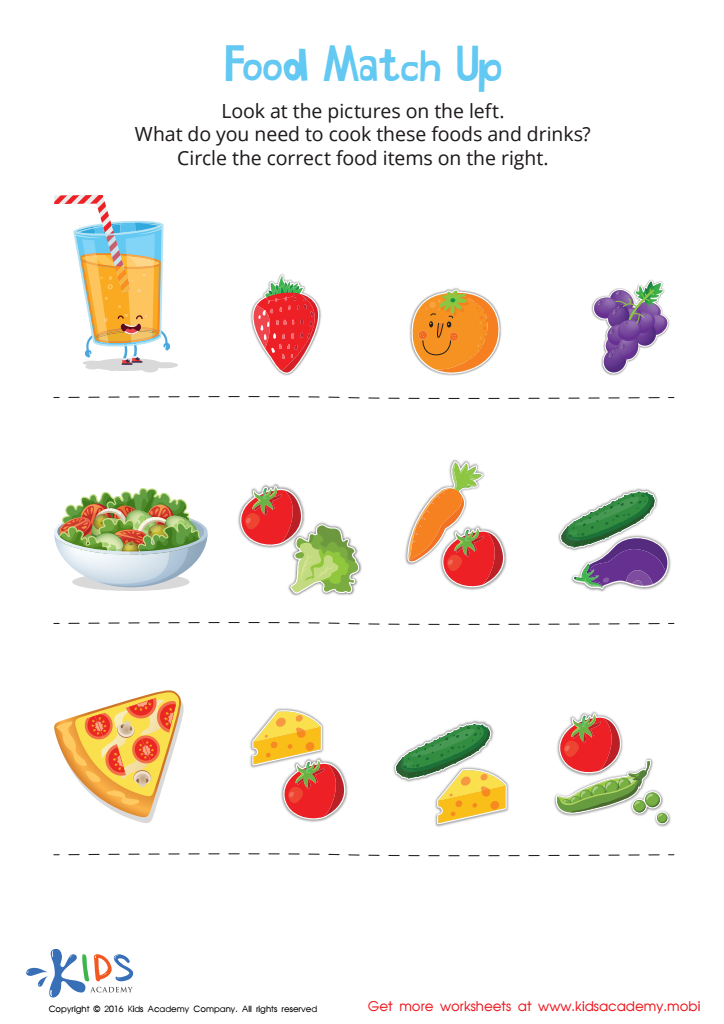

Food Match Up Worksheet
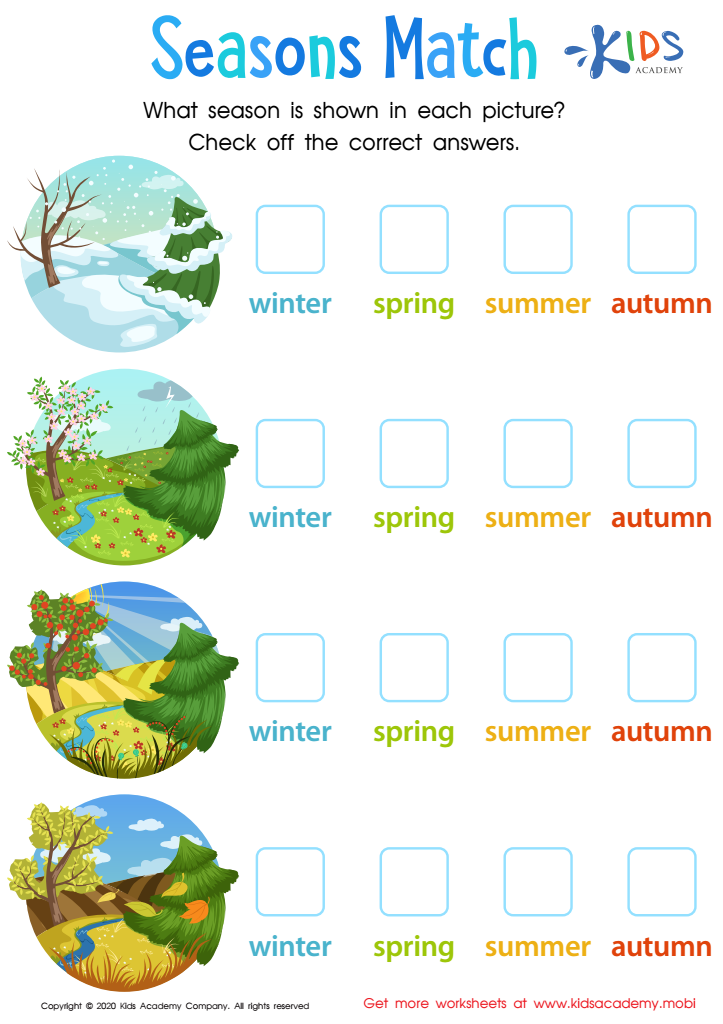

Seasons Match Worksheet
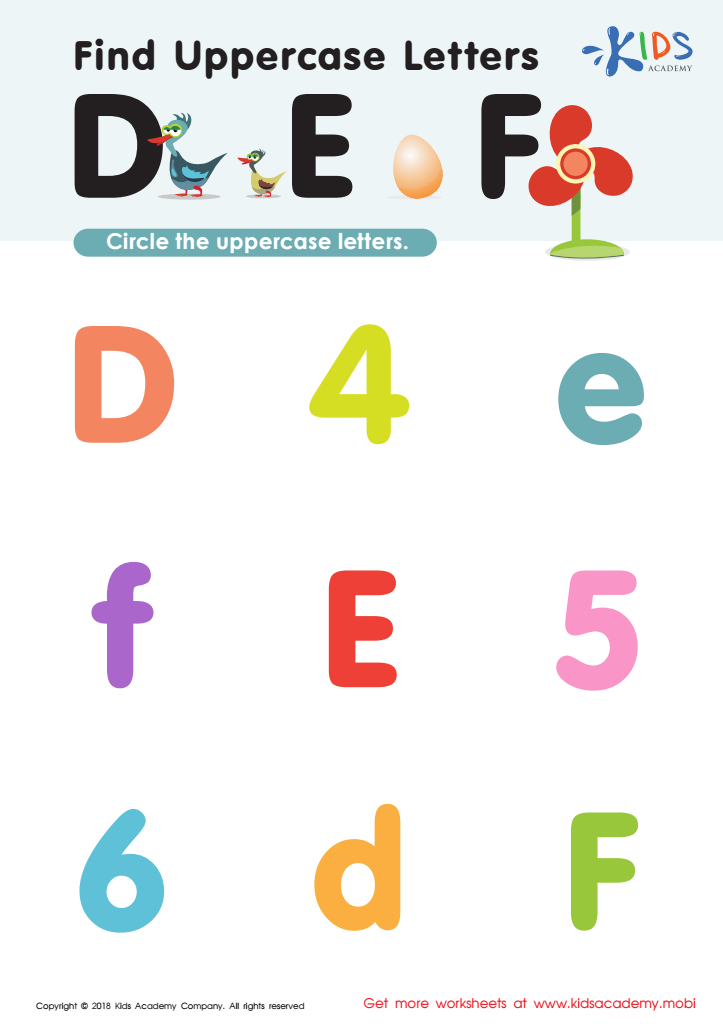

Find Uppercase Letters D, E, and F Worksheet
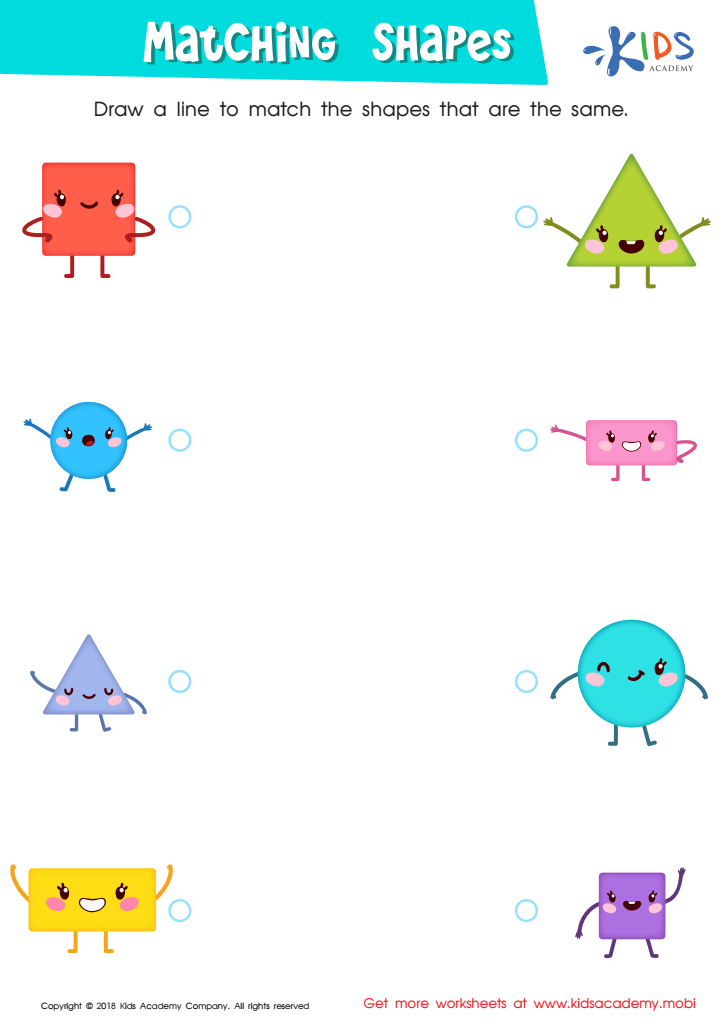

Matching Shapes Worksheet
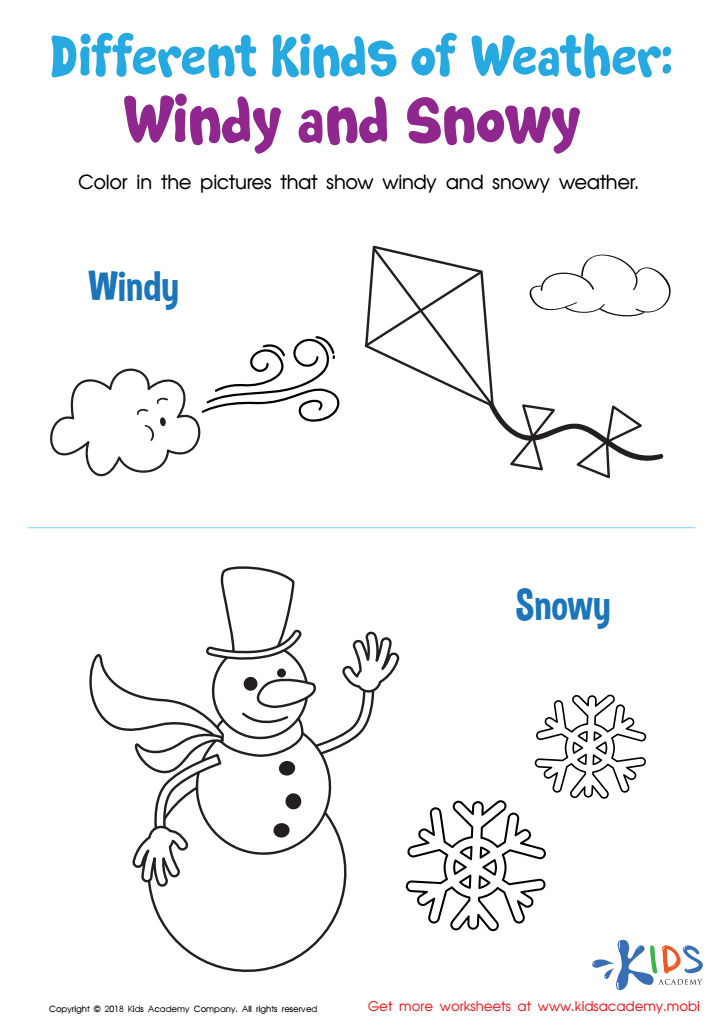

Different Kinds of Weather: Windy and Snowy Worksheet
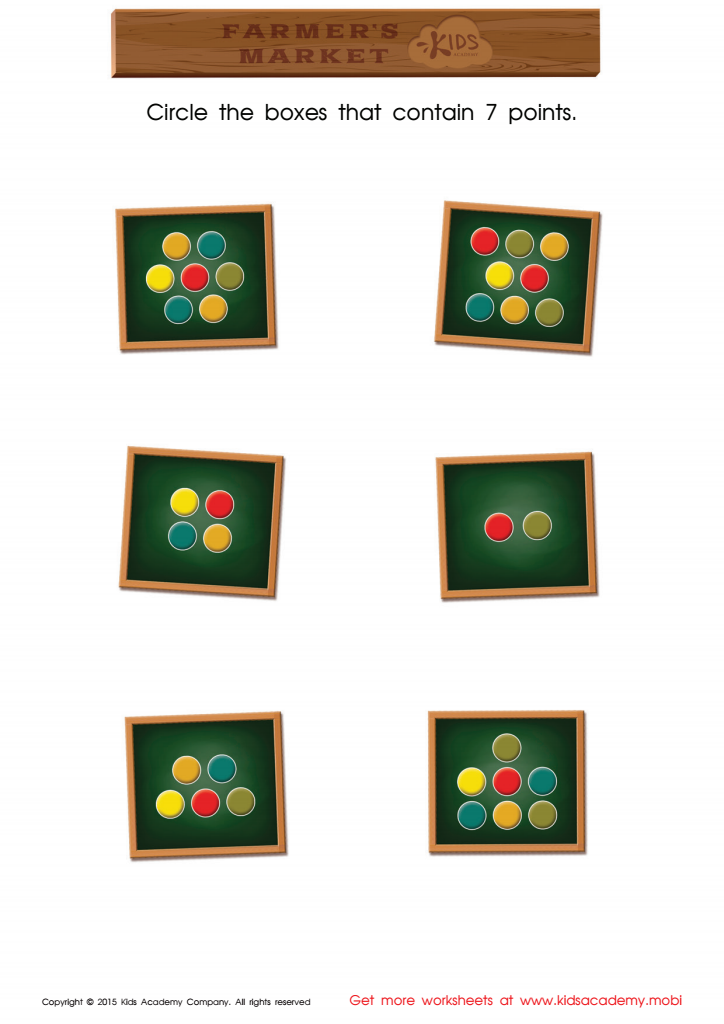

Count and Match Points 7 Math Worksheet
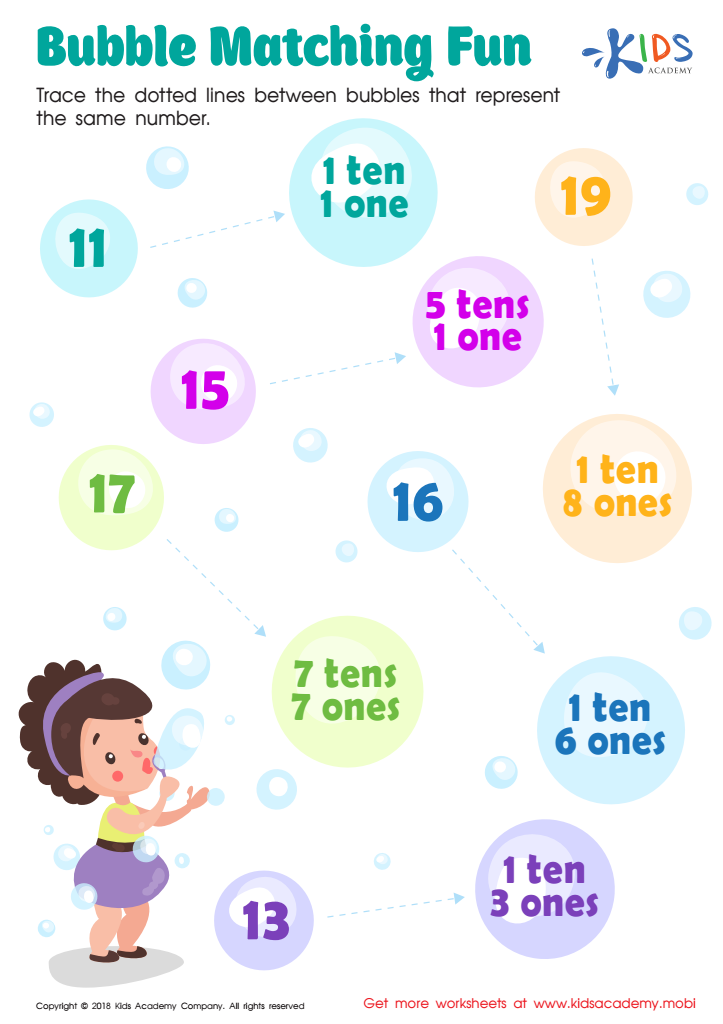

Bubble Matching Fun Worksheet
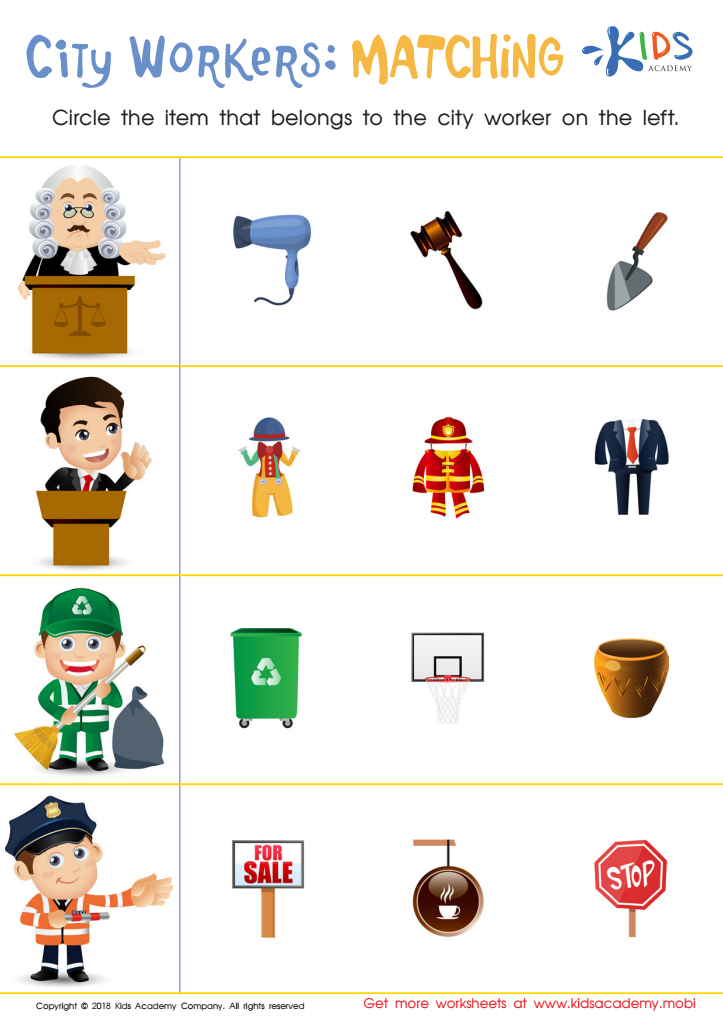

City Workers: Matching Worksheet
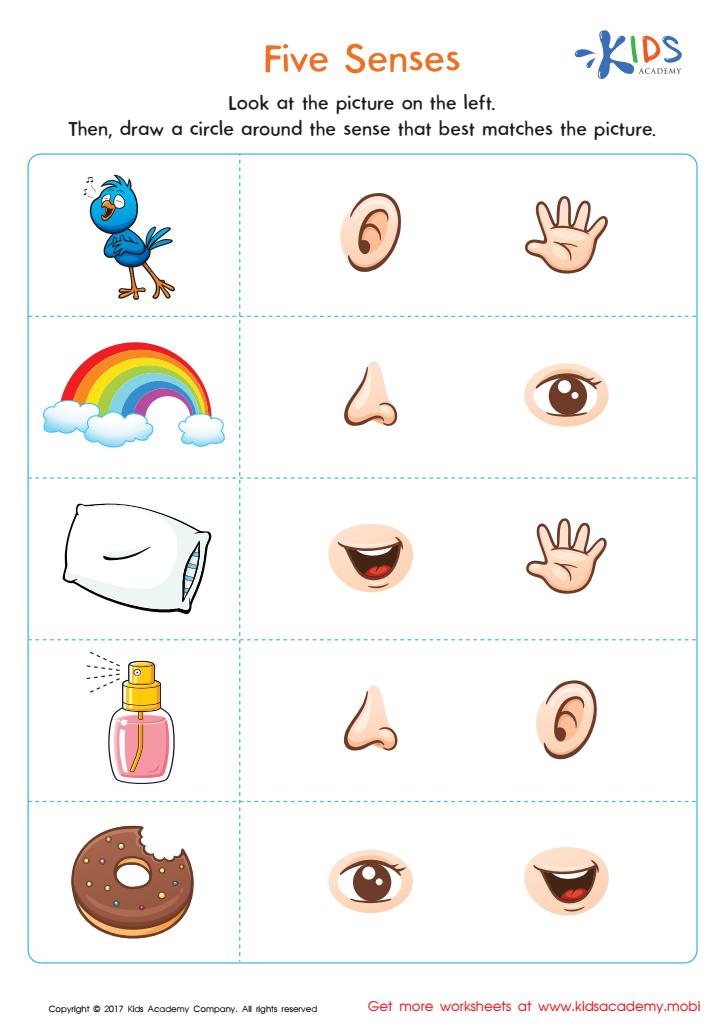

Five Senses Printable
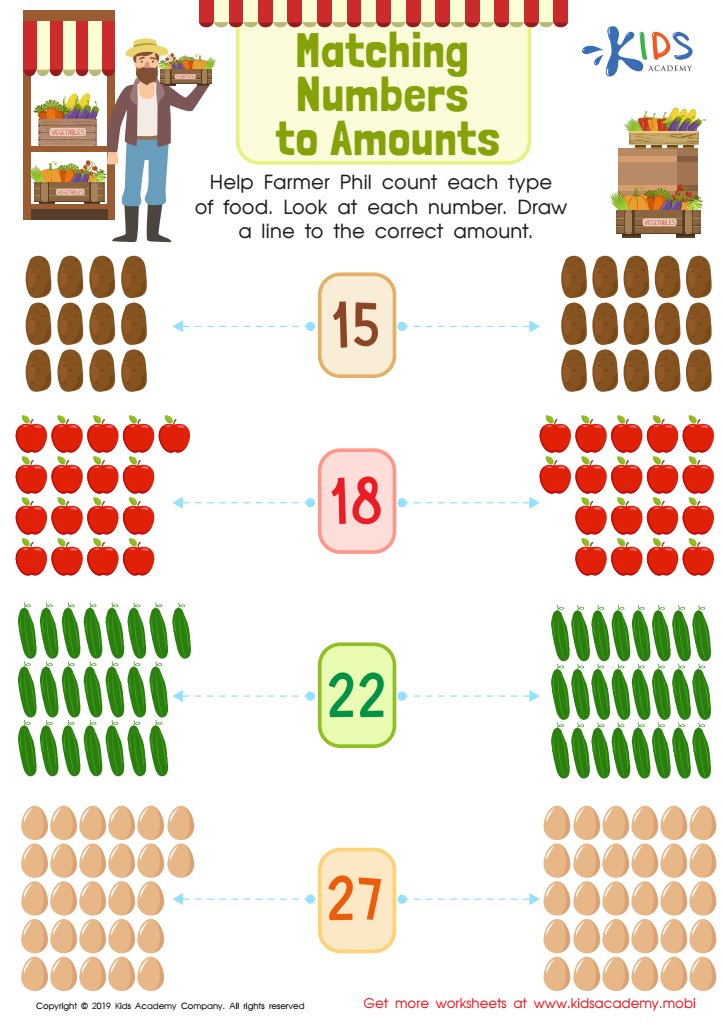

Matching Numbers to Amounts Worksheet
Parents and teachers should deeply care about developing matching skills in children ages 3-6 because these skills lay a critical foundation for cognitive development. Matching activities help young children improve their visual discrimination, attention to detail, and memory—all of which are crucial for later academic success. When children engage in matching games, whether they are matching colors, shapes, objects, or pictures, they enhance their ability to observe patterns and understand relationships between different items.
Moreover, matching games support the development of fine motor skills, as children often manipulate pieces to find corresponding pairs, and this enhances hand-eye coordination. Language development is also fostered through matching activities, especially when children's games are interactive and verbal reinforcement is given. Naming the items being matched helps with vocabulary building and comprehension.
In addition, matching skills play a vital role in early math concepts. Recognizing similarities and differences, categorizing items, and understanding the concept of one-to-one correspondence are all foundational math skills enhanced through matching. Furthermore, matching activities promote problem-solving skills and logical thinking.
Hence, incorporating matching games and activities into the daily routine of children can make learning enjoyable and engaging, setting them up for future success in more complex cognitive and academic tasks.
 Assign to My Students
Assign to My Students
